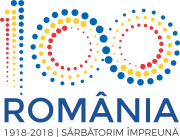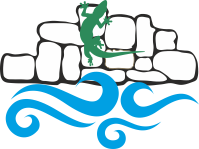

”Ovidius” University, Senate Hall, Constanța, June 22nd, 2018
Official launch of the
”Dobrogea, Witness of the Millennial Civilizations of the Levant”
Dobrogea, the host of many cultures and civilizations, an area in which 16 ethnic minorities live in harmony, at the same time as they maintain their specific features as well as cultural and religious beliefs, is the model proposed by the Institute of Advanced Studies in Levant Culture and Civilization as a possible solution to the inter-ethnic and inter-confessional conflicts undergoing in the respective area.
Goals
- The study of natural and cultural heritage in Dobrogea for the protection and preservation of natural and cultural sites;
- Scientific research on the history, culture and traditions of numerous ethnic groups in Dobrogea;
- Identification of the regions with potential for sustainable development according to the UNESCO criteria for creating geoparks;
All these goals aim to achieve a comprehensive knowledge of the long and harmonious cohabitation of some ethnicities, many of them having their roots in the Levant.
Research methods and strategies
The utilized methods and strategies are specific to the research fields: nature, culture, ethnicities. The interdisciplinarity character of the research is highly promoted. The project is based on the holistic approach of the natural heritage (with its two sections: biotic – biodiversity and abiotic – geodiversity) and of the cultural heritage (either tangible or intangible – traditions). This is an integrative and modern strategy aiming to contribute to the economic and social development of regions.
Duration of the project
It is a triannual project (2019-2021), structured on three annual stages, corresponding to the three geological and geographical regions of Dobrogea: South, Central and North.
The preliminary work (1st of June - 20th of December 2018) consists in signing partnership agreements, establishing thematic teams, and preparing a detailed plan of activities. In this period some exploratory visits shall be conducted to plan specific activities for each team of the project.
The partnership framework of the project
Three teams of researchers collaborate in this project, having the following specific goals:
- History-archaeology: research of some relevant sites, dating from the Hellenistic, Roman and Byzantine period, unknown or insufficiently investigated until now;
- Dobrogea’s ethnicities and their cultures: history, traditions, integration in the social context of the region;
- Dobrogea’s natural and cultural heritage: evaluating the state of preservation and assuring the visibility of the natural and cultural sites; documentation for the creation of a new UNESCO Geopark.
Capitalization of partial and final research results
The research results will be published in the International Journal of the Levant Studies, the biannual journal of the Institute for Advanced Studies in Levant Culture and Civilization. They will be also disseminated during national and international reunions (conferences, symposia).
At the end of the project, a monograph will be published about the natural and cultural heritage of Dobrogea, structured in three volumes focused on the three regions of Dobrogea (South, Central and North), with a highlight on its ethnicities’ history and culture.
Emil Constantinescu, Chairman of the Scientific Council of the Institute for Advanced Studies in Levant Culture and Civilization:
“Levant. Dialogue and identity preservation”
”Every time I was invited at the UN, at UNESCO, and in the parliaments of the countries in which I presented ”The Levant Initiative for Global Peace”, I stated that the goal of cultural diplomacy is neither the resolution of open conflicts, nor of frozen ones, but rather the culture of peace.
The culture of peace cannot be achieved unless we recover the culture of democracy. It cannot occur unless we rediscover the fact that dialogue can only be achieved through the preservation of identities. Dialogue cannot exist in the absence of one’s identity. The West failed in that regard.
These principles are the foundation of our endeavor”.
Professor Sorin Rugină, PhD, Rector of the “Ovidius” University of Constanța:
Dobrogea’s culture and civilization
“Dobrogea is an inexhaustible spring of culture and civilization, one we must know of and support. I strongly consider that this project can generate a spirit of emulation, in order to develop the environment from all points of view: economic development, but also environmental and historical preservation.”
Professor Dan Grigorescu, PhD, Scientific Director of the Institute for Advanced Studies in Levant Culture and Civilization
Dobrogea, a representative model for the Levant
“The main goal of the project is the focus on the natural and cultural heritage of Dobrogea, and the manner in which natural and cultural values can support regional development. Such an approach of areas of extreme scientific and educational importance led to the constitution, within a NATO program, of a new type of protected area: the geopark. Over 150 geoparks have been established throughout the world in this program. The project shall have a holistic approach of natural heritage, with its two, strongly interdependent components: the abiotic component (geo-diversity) and the biotic one (bio-diversity). It is the manner in which nature is better understood that counts, together with the dangers affecting it, a manner requiring thus protection. An additional aspect within the project is the fact that cultural heritage shall comprise not only historical, archaeological, and architectural sites, as well as regional traditions and folklore, the latter representing the so-called intangible aspect of heritage. Patrimonial values of nature and culture generated all over the world legends and mythologies, and they abound in Dobrogea; the aim of the project is to research also this side of heritage.
Research focused on various ethnicities of Dobrogea, as well as their history and culture, represents another goal of the project, which is intended to be finalized through the elaboration of a monograph on natural and cultural Dobrogea”.
Professor Dan Grigorescu, PhD, Scientific Director of the Institute for Advanced Studies in Levant Culture and Civilization
The project of a UNESCO geopark in Dobrogea
”The geopark is a model embraced by the natural and cultural heritage which proved efficient in regional development. The concept was launched by UNESCO in 1997, as a result of a European movement for the protection and preservation of the inanimate part of nature, which is geo-diversity, undoubtedly less taken into consideration than the animated one, which is bio-diversity. Within a geopark, the two components go hand in hand, both as far as education for nature is concerned, as well as its protection and inclusion in touristic routes, together with places of historical and cultural reference.
In 2004, the Dinosaur Geopark Țara Hațegului (Hațeg County) was created, the first geopark of the former Communist part of Europe, acknowledged by UNESCO in 2005. The geopark was created based on the exceptional scientific values existing at the time, as far as paleontology and geology especially are concerned. The area of Țara Hațegului (Hațeg County) is known worldwide for its dwarf dinosaur fauna dating back to the end of the dinosaur era, around 65 million years ago, but also for the largest flying animal, contemporary with dwarf dinosaurs – the huge pterosaurs Hatzegopteryx. Moreover, the area comprises places of extreme cultural and historical importance, such as the artifacts of the Roman castrum of Sarmizegetusa – Ulpia Traiana, and the Densuș Church, representative of Transylvanian medieval architecture. Emulating the path already created in Țara Hațegului ( Hațeg County) , it is our intention to create a similar geopark in Dobrogea, within the project established in partnership with ”Ovidius” University.













